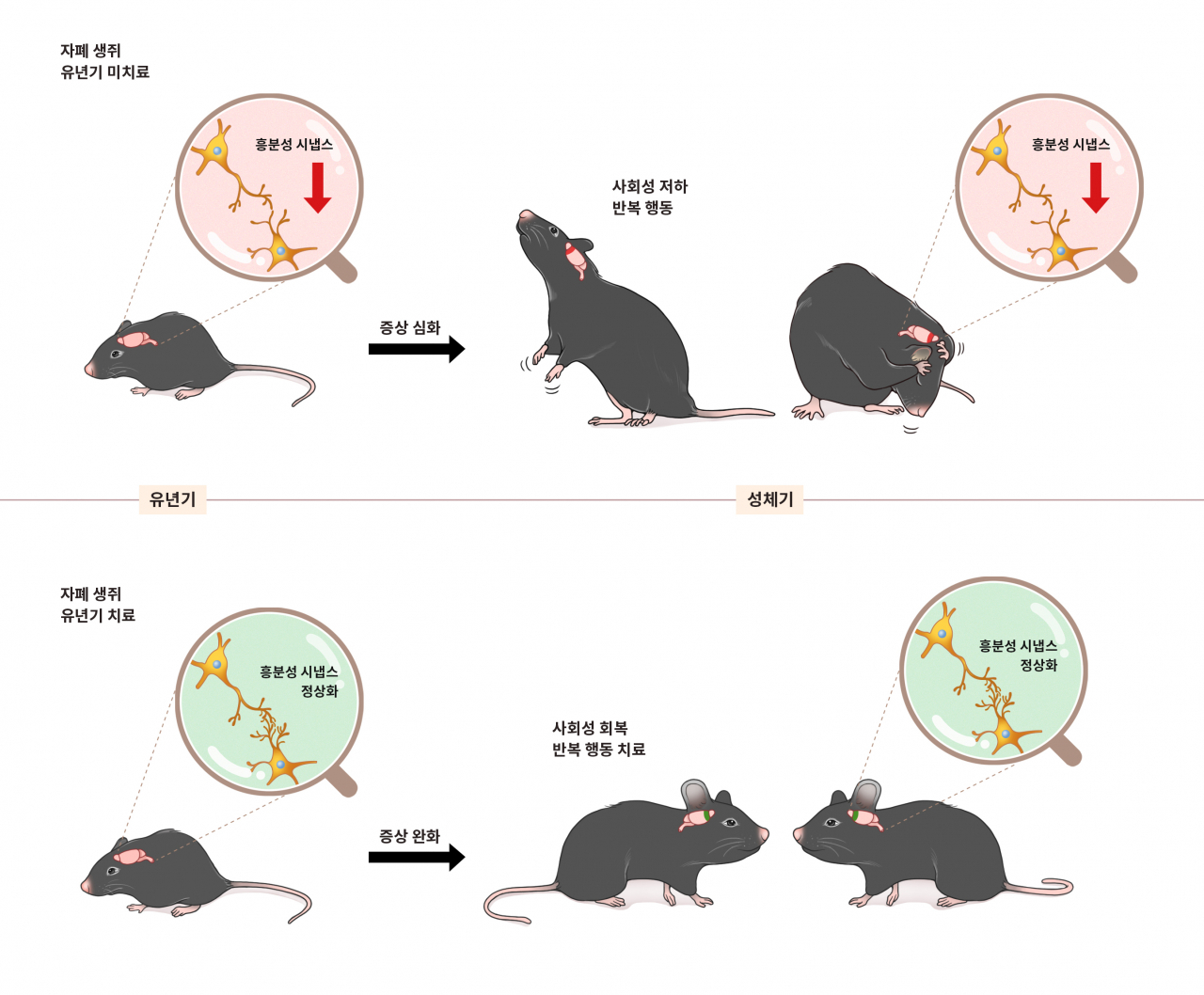[Newsmaker] Researchers discover silver lining in autism treatment
Study shows possibility of easing autism symptoms for life with early detection, medication
By Kan Hyeong-wooPublished : Sept. 21, 2022 - 15:15

South Korean researchers have discovered how early diagnosis and medication may help ease symptoms of those with autism spectrum disorder, the Institute of Basic Science said Wednesday.
Autism is a type of brain development disorder found in about 2 percent of the world population, according to the IBS. Common symptoms include a lack of social communication and interaction skills as well as repetitive behaviors and unexpected reactions. The exact cause of autism and its treatment still remain unknown, IBS said.
The researchers led by Kim Eun-joon, director of IBS' Synaptic Brain Dysfunctions Lab, analyzed how removing the gene MYT1L, which is one of the major causes of autism if removed or mutated -- affects the degree of autistic symptoms over the course of growth in mice models.
Scientists found that the mice without MYT1L genes tended to stay away from having social interactions with other mice and repeatedly jumped in the cage during infancy. The autistic symptoms were lessened during adolescence, but they came back stronger once the mice reached adulthood. The IBS said the research demonstrated the importance of early diagnosis in order to treat autism.
In a separate study, the researchers also tested how early medication can be effective in treating the brain disorder. They turned to ARID1B protein, another gene that causes autism if removed or mutated, for the mice model. According to the researchers, a lack of ARID1B protein led to a decrease in the number of excitatory synapses in the prefrontal lobe of the brain.
Based on the knowledge that the disorderly changes in the brain take place in infancy, the scientists injected Fluoxetine -- a drug that can increase the number of excitatory synapses -- over the course of three weeks after the mice were born and had their ARID1B removed.
The study showed that genetically flawed mice, which received the medication during their infancy, demonstrated a similar level of sociality and repetitive behaviors when they reached adulthood in comparison to other normal mice. The researchers said the number of synapse transfers and signals was also normalized.
“Through the two studies, we found out the triggering mechanism of autism depending on the growth process and confirmed that concentrated treatment during infancy can relieve the autistic symptoms for life without additional injections of medication,” said Kim.
“We will continue to conduct follow-up studies to verify whether autistic symptoms caused by other genes can be eased with early diagnosis and medication."
-
Articles by Kan Hyeong-woo




















![[Today’s K-pop] BTS pop-up event to come to Seoul](http://res.heraldm.com/phpwas/restmb_idxmake.php?idx=642&simg=/content/image/2024/04/17/20240417050734_0.jpg&u=)